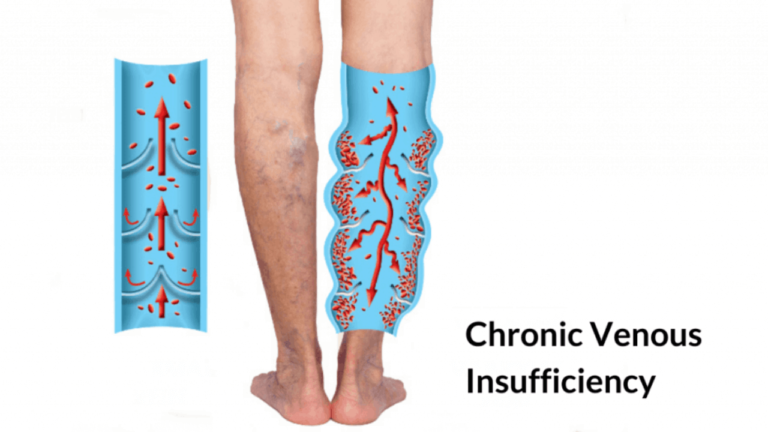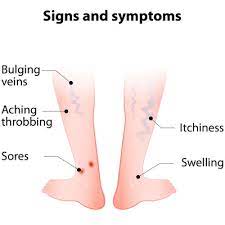Is numbness is also a symptom of varicose vein?
About Varicose Veins
You have several veins running throughout your body. Your veins are responsible for your blood’s circulation. Inside your veins are one-way valves that push blood to and from your heart.
When your valves weaken or become damaged, pressure builds up inside your veins from the poorly-circulated blood. This pressure is what causes varicose veins.
Varicose veins are often twisted and swollen in appearance. Many people have them, but not everyone with varicose veins experiences physical or neurological symptoms from them.

Why Do Varicose Veins Cause Numbness?
One of the reasons varicose veins happen is poor circulation in your legs and feet.
1.When the nerves and tissues in your legs and feet aren’t getting adequate blood flow due to poor circulation, they experience oxygen deprivation.
Oxygen deprivation is what causes tingling or numbness.
2.Remember those times when your arm or leg has suddenly gone numb from laying on it wrong? After adjusting your position, you get a feeling of pins and needles that can sometimes be extremely uncomfortable.
3.When one of your sensory nerves is compressed from a cramped position, its messaging with your brain gets interrupted. Once the pressure is removed, the nerve’s functioning resumes, which results in the uncomfortable (and sometimes outright painful) sensation of pins and needles.
4. varicose veins decrease oxygen in your extremities, they can cause pinching or pressure in your sensory nerves as well. This is why you may experience an oscillation between total numbness and painful tingling.
Is Numbness from Varicose Veins Dangerous?
You might be wondering if numbness from varicose veins is dangerous. After all, if your arm or leg can recover from temporary compression without causing harm, isn’t the same true for varicose veins?
While symptoms of numbness from varicose veins may not be dangerous on their own, they could be indicative of more severe complications such as:
1.Ulcers
2.Blood clots
3.Internal bleedingIn general, varicose veins are not something to be worried about. However, underlying health issues could be lurking beneath the pain of varicose veins.
You should see a medical provider about your varicose veins if you experience any of the following symptoms:
1.Severe, constant pain and swelling in your legs
2.Heaviness or dull, aching sensations in your legs after physical activity
3.Sensitivity or tenderness around varicose veins
4.Open sores on your skin
If you’ve tried some home remedies for alleviating the symptoms of varicose veins, such as lifestyle changes, exercise, or compression socks with no improvement, it might be time to see a vein specialist.

Treating Numbness and Varicose Veins
Managing Varicose Veins: If you’re dealing with varicose veins and numbness, there are a few steps you can take to ease the discomfort and improve circulation.
Compression stockings: These special stockings gently squeeze your legs, helping to push blood back up toward the heart. This can reduce swelling and relieve pressure on your veins and nerves.
Leg elevation: Putting your legs up above heart level helps encourage better blood flow and can take some of the strain off your veins, which may reduce numbness.
Medical treatments: For more severe varicose veins that are causing persistent numbness, procedures like sclerotherapy (injections that shrink the veins), laser therapy, or even vein stripping (removal of the affected veins) may be necessary. These treatments aim to eliminate the root cause and provide long-lasting relief from symptoms.
Self-Care Tips: Taking care of your legs can go a long way in preventing numbness and minimizing the impact of varicose veins.
Exercise: Staying active with low-impact exercises like walking or swimming helps keep your circulation moving smoothly, which can reduce the risk of numbness.
Avoid prolonged standing or sitting: Try to switch positions frequently and avoid staying on your feet or seated for long periods. When sitting, elevate your legs to encourage blood flow.
Maintain a healthy weight: Extra weight puts added pressure on your veins, so keeping your weight in check can reduce strain and lessen symptoms like numbness.
With these simple yet effective strategies, you can manage both varicose veins and the numbness they may cause, helping you feel more comfortable and supported in your daily life.
Conclusion
Yes, numbness can be a symptom of varicose veins, though it is less common than other symptoms like swelling or aching. If you’re experiencing numbness alongside varicose veins, it’s important to pay attention to other signs and consult a healthcare provider for an accurate diagnosis and treatment plan.



